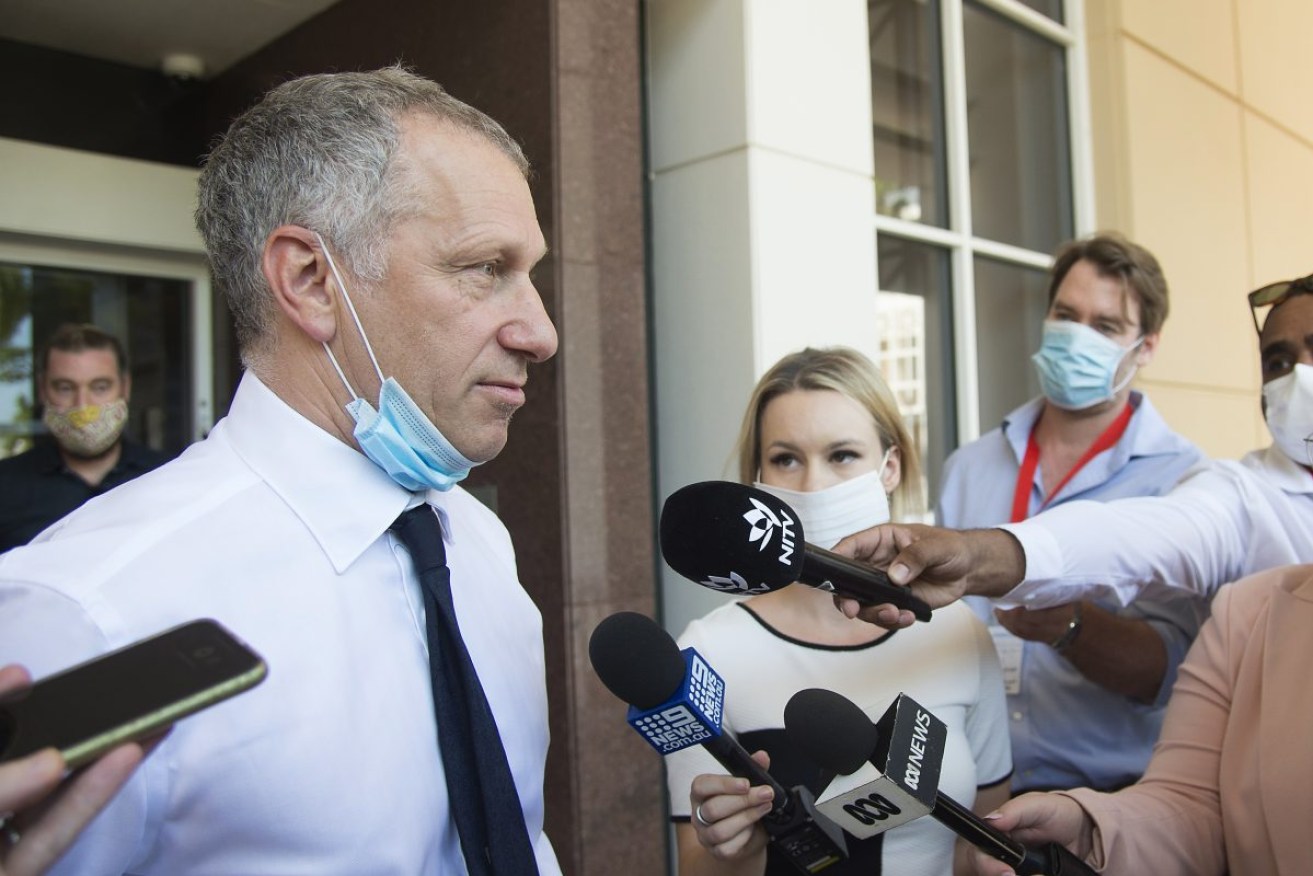NSW barrister appointed to review bungled Hanlon case
A Sydney barrister has been appointed by the state government as “inspector” of the state’s Independent Commission Against Corruption, with his first task to review the investigation and subsequent failed prosecution of former Renewal SA boss John Hanlon.

NSW barrister Philip Strickland SC (left) has been appointed as the first ICAC inspector. Photo: Aaron Bunch/AAP
Attorney-General Kyam Maher told parliament this afternoon that the Governor had appointed respected Sydney barrister Philip Strickland SC as the first inspector of the South Australian ICAC.
He said Strickland’s first task would be to review the ICAC investigation that led to the prosecution of former Renewal SA chief executive John Hanlon. That prosecution ended with the DPP last month dropping its case in the District Court.
It was the second time that the prosecution’s argument had fallen apart due to a lack of evidence, in a case that stemmed from an 18 month-long ICAC investigation overseen by former commissioner Bruce Lander into Hanlon’s 2017 taxpayer-funded work trip to Berlin.
Strickland, who has worked as a barrister in New South Wales and the Northern Territory for more than 30 years specialising in criminal law and the regulation of public officers and authorities, has been handed similar powers to the ICAC to conduct his inquiry.
He will be able to summons witnesses to appear for examinations and require the production of documents.
Maher said Strickland’s appointment was in accordance with a recommendation of parliament’s Statutory Officers Committee.
He said the significance of the appointment “cannot be overstated”.
“Members will be well aware of the widespread coverage and debate regarding the investigation and prosecution of Mr John Hanlon, a former Chief Executive of Renewal SA,” he told parliament.
“The appointment of the first Inspector will allow for me, as Attorney-General, to request that the Inspector conduct a review of this matter.”
Strickland will take over from ICAC reviewer John Sulan KC, but changes to the ICAC Act last year mean he will assume the new title of “inspector”.
Maher said the ICAC inspector’s functions include conducting reviews relating to complaints made under the ICAC Act and the Ombudsman Act, as well as those requested by the Attorney-General.
Strickland will start in the role on Monday.
“Mr Strickland has extensive experience in criminal law and in the regulation of public officers and authorities,” Maher said.
“I have no doubt he will bring an impartial and thoughtful approach to the role.
“I would like to thank the Honourable John Sulan KC for his diligent and thoughtful service as Reviewer.”
It comes after parliament’s Crime and Public Integrity Policy Committee last week stopped ICAC commissioner Ann Vanstone from providing evidence on the Hanlon investigation, after she raised concerns about “substantial errors and inaccuracies” in the reporting of the case.
Vanstone told the committee that she wanted to comment on “remarks which have been ventilated both in the upper house and in the media”.
But she was stopped by the committee’s chair, Labor MLC Justin Hanson, who said the committee had “certain advice about the terms of reference of this committee and the types of evidence we can hear when conducting inquiries”.
InDaily asked Vanstone to detail the evidence she was prevented from providing to the committee, but a spokesperson from her office said it would “not be appropriate” to make remarks outside the committee room.
Vanstone has previously said that it was not “apparent” that any ICAC investigator acted unlawfully when investigating Hanlon’s work trip, but she would investigate that allegation.
She said it was for the DPP – not the ICAC – to decide what matters should be prosecuted or how they should be prosecuted.
SA Best MLC Frank Pangallo has called for a royal commission into the integrity body.
Pangallo, who led changes to the ICAC Act last year, said the reforms which severely limited the scope of the ICAC’s activities “may not have gone far enough”.
Meanwhile, Premier Peter Malinauskas described the outcome of the Hanlon case as “truly shocking”.




